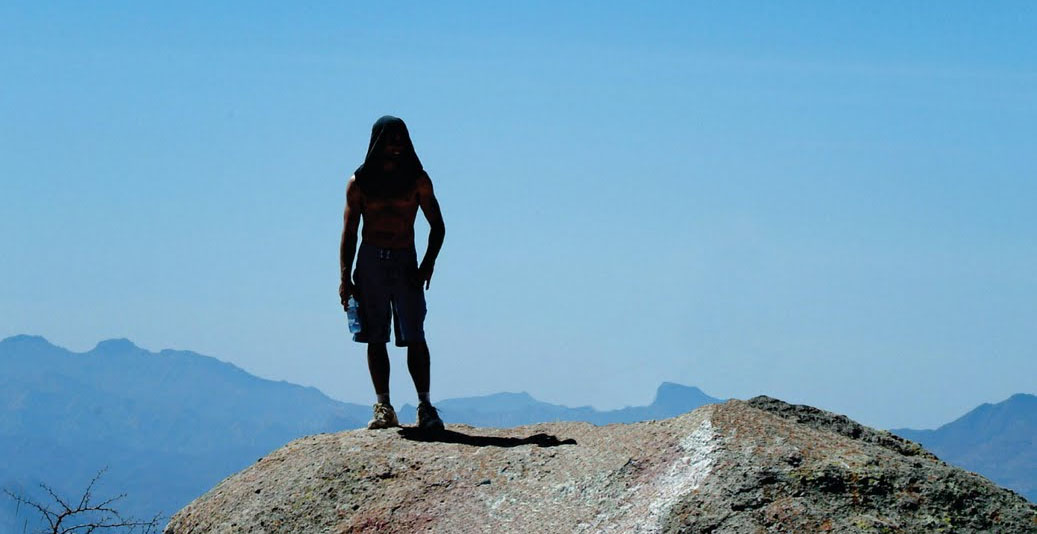Back in 2010, I began tracking the books I read, for what purpose I do not know. As a heavy library user, I suppose it is nice to have a digital bookshelf of my completed books, since most of the books aren’t on my physical shelf. Adding a book to the list also gives me that little boost of serotonin. Yay for a sense of accomplishment!
Just recently, about 8 years after I began tracking my reading, I added the 100th book to my list. 100 books in 8 years isn’t exactly record breaking (it averages out to about one book a month), but it felt like a milestone worth reflecting on. So here comes some reflecting.
Obviously, I’m not going to bore you with 100 book reports, but I did want to point out some of the most noteworthy and influential books from my list. The titles below are the ones that have stuck with me for years due to entertainment value, educational value, or both. I have split the titles into Fiction and Nonfiction, but you will still find a wide variance in each. There should be something for everyone and hopefully you will find something that interests you.
Fiction
11/22/63 by Stephen King
I have already spoken a bit about Stephen King’s 11/22/63 in my series Time for Time Travel, but it’s worth talking about again. This novel is classic King in so many ways. Like many of his later works, 11/22/63 is long and meandering in a such a pleasant way. The many detours from the “save Kennedy” plotline ended up being my favorite parts. King’s characters are one of his greatest strengths and he nails them here. And while I love all the time travel stuff and the classic King tropes, what sticks with me years later is the perfect ending (a rarity for King). If you are a Stephen King fan, this book is a must read. Even if you aren’t, read it anyways.
Blood Meridian by Cormac McCarthy
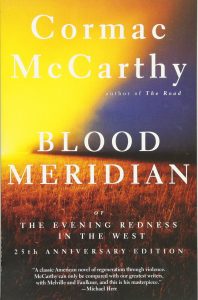
Boy, where to start with this one? Blood Meridian by Cormac McCarthy is on the pedestal of one of my favorite books ever. It’s also a really challenging book to read, both lyrically and due to the graphic content. It’s a story of the American West told through violence, yet somehow it is beautiful. McCarthy is like a painter with words and the images, often horrifying, come to life like no other. It’s not as accessible as some of his other works, such as The Road, but it’s definitely his best. I’ve read Blood Meridian a few times and there is always more to unpack and to enjoy.
The Catcher in the Rye by J.D. Salinger
The Catcher in the Rye was interesting to me not because of the impact it had on my life, but because of how little it spoke to me. The book is a classic coming of age story that I probably should have read a decade earlier. I think there is a true dichotomy in interpretation of the book depending your age. For young adults, the book speaks to them. For older folks like myself, I just felt like the kid was a brat. But that alone is super interesting and reflective of growing up and growing older. This book also exposed me to the interesting story of the reclusive J.D. Salinger, which was just as fascinating to learn about.
Dune by Frank Herbert
Dune is so good. I would never consider myself a big science fiction reader, but I instantly understood why this book is a classic. It’s a great and entertaining read with immense backstory and philosophy to round everything out. Do you want to learn about the ecology of Dune? Because you’re going to learn about the ecology of Dune! Reading Dune is like uncovering the inspiration behind many great sci-fi stories (young boy on a desert planet learning new mystical powers anyone?). It’s weird and wonderful in all the right ways. Another book I’ve gone back to multiple times.
East of Eden by John Steinbeck
Blood Meridian was alone at the top of my favorite novels until East of Eden came along to challenge it. Steinbeck’s masterpiece lived up to the hype for me. It’s moving, it’s tragic, and a surprisingly enjoyable read. One thing I couldn’t get over was how modern the work felt. Published in 1952, it could have just as easily been published today. It’s an incredible work that deserves to be read multiple times (which I haven’t done yet).
The Handmaid’s Tale by Margaret Atwood
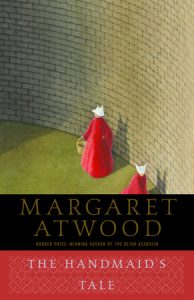
I’m a Margaret Atwood hipster, discovering her before she was cool. That, of course, isn’t true at all as she has been a mainstay for quite sometime, but with all the attention she has received lately sometimes it feels like she’s a hot new writer. The Handmaid’s Tale isn’t the first book I read from Atwood, or even necessarily my favorite, but it’s the one book everyone should read. It tackles many of Atwood’s favorite topics, such as dystopianism and feminism, without being a tome. It’s depressing to say the least, but more important than ever.
Infinite Jest by David Foster Wallace
Speaking of tomes, if you want a book that can also serve as a blunt instrument, Infinite Jest is for you! There is a joke that goes, “How do you know if someone has read Infinite Jest? They will tell you.” So here I am telling you about it. The book is a marathon and I understand why anyone who finishes it would want to share. But it’s so much more than just a gargantuan book and it deserves the high praise it receives. It took me months and months to read it and I admittedly was lost for a good chunk of it. It made me laugh, it made me frustrated, and it was unlike anything I’ve ever read before. For anyone seriously considering tackling the book, I would recommend using a guide to get the full experience, which I regret not doing.
Snow Crash by Neal Stephenson
Neal Stephenson’s near-future cyberpunk setting continues to stick with me due to it’s shockingly realistic predictions. There are of course all the themes relating to the internet and virtual reality, but what always gets me is the horrifying descriptions of surveillance. Government employees thinking about their every keystroke and mouse movement because it’s all being logged and evaluated. The future is now! But despite all the dystopian doom and gloom, Snow Crash is a fun and accessible book, especially compared to some of Stephenson’s later works. Strap on a nuke and get to reading this.
Nonfiction
Battle Cry of Freedom by James M. McPherson
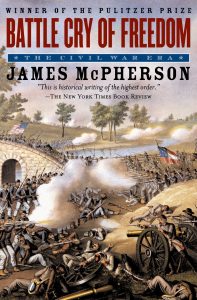
When I was younger, I couldn’t care less about history. I didn’t have anything against it, but I didn’t know what value I could take away from it beyond historical facts. One thing great about getting older is learning how wrong I was about that. Battle Cry of Freedom is a book every American should read. What I knew of the Civil War was what I learned in school (which wasn’t much). McPherson’s book is a masterpiece and distills the entire Civil War into a readable text for the layman. For myself, what I found most interesting is that human nature doesn’t change. There are always politics, opponents, disagreements, misinterpretations. Reading about the various factions in the North and South was like reading a book about today’s United States. In some ways that is depressing, but in others it is reassuring. Slavery ended and the Union was restored, despite that being in doubt at times. There is always hope.
The Better Angels of Our Nature by Steven Pinker
This book was the first to really break me out of the “everything is going to hell” paradigm that is common in our culture. Sure, I knew that the media exaggerated and distorted reality and I knew that we were living in pretty good times, but The Better Angles of Our Nature hammered that point home with 800+ pages of hard data. Focusing on violence, Pinker provides what I would call a conclusive argument that we are living in the most peaceful time in existence. We obviously still have problems we need to solve and the book isn’t trying to minimize the atrocities of the world, but we should recognize that these atrocities are no longer the norm. We are not slipping into some apocalyptic nightmare. Could things change? Of course. Violence is only being reduced because of the choices humans are making. Let’s keep it up.
Born to Run by Christopher McDougall
I didn’t seriously take up running until I was in grad school and even so I’m pretty mediocre. But I don’t run to beat others, I run to challenge myself. Born to Run was the first book I read about running and it blew me away. Remember the barefoot running movement? This book is what started it. And while some of the notions put forward by McDougall are contentious, the overall message is not: humans are born to run. The classic image of man hunting its prey is probably proceeded by us running after it for hours until the animal wore itself out. Running is in our very biological nature. And even if barefoot running (or forefoot striking) isn’t for you, the book is still a greatly entertaining ethnography on the Tarahumara people and competitive running.
Evicted by Matthew Desmond
In my non-website work life, I deal pretty directly with homelessness. And it’s obvious to me (and anyone who has thought critically about it) that homelessness is a systematic problem. Evicted, as you would guess, takes a look at the system of evictions, landlords, and poverty in Milwaukee, Wisconsin. For someone like myself who felt somewhat knowledgeable about the topic, it really opened my eyes to the injustices occurring and the circular problems that exist. It’s easier and more profitable to evict tenants and take them to court than it is to properly manage a property. Instead of offering housing to help people get back on their feet, it’s seen as an easy (and exploitative) way to get rich. Evicted isn’t the most uplifting read in the world, but Desmond does lay out policy suggestions and a way forward. A fascinating and heartbreaking read.
Moonwalking with Einstein by Joshua Foer
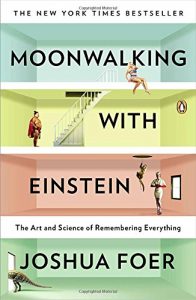
This book didn’t change my life or teach me a valuable lesson, but it is still one of the most interesting and engrossing books I read in the past 8 years. Moonwalking with Einstein follows Foer on his personal adventure into the world of competitive memory competitions. I never thought much about memory before reading this book, but it’s now a favorite topic of mine. The idea of spatial memory being stronger than rote memorization has stuck with me ever since. I struggle to remember random dates and number, but I can close my eyes and vividly walk myself through my house or drive to the store without any problem. As Feor explains, the key to competitive memory is transforming random strings of numbers/facts/etc. into a spatial setting. I simply loved this book and recommend it to everyone.
Quiet by Susan Cain
I already wrote a whole article on Quiet, so I’m not sure what else there is to say, other than that I continue to stand by it. I have always been an introvert and this is the first book I’ve read that made me feel like that was okay. Introversion isn’t something that needs to be overcome, it’s something that needs to be embraced. I do my best to remember that lesson not only for myself, but for every part of my life. Being alone, sitting quietly, and thinking critically are not bad things (shocking). I work with and supervise a bunch of introverts. Why not empower them to do what they are good at instead of forcing them to be something they are not? This book is a much needed challenge to our societal norms.
The Signal and the Noise by Nate Silver
For anyone interested in statistics and probability, this is the book for you. I get that isn’t the best hook for a lot of folks, but this is a great read with plenty of real life takeaways. Unfortunately, humans can interpret (or misinterpret) data in tons of ways. Media hands us a lot of information and it’s important that we are able to properly evaluate and understand it. And even if all the math isn’t for you, the book is a fun and interesting read covering topics like baseball, weather, and the financial crisis of 2008. Introducing the work of Nate Silver is also worth the price of admission. Check out his website, FiveThirtyEight, to get a feel about what he’s all about.
Your Money or Your Life by Vicki Robin
This is a book that truly changed my life, at least when it came to money. I have always been a frugal person and a good saver, but this book really hammered home the role money plays in people’s lives. Your paycheck isn’t meant to get you to the next paycheck or even to your next big purchase (car, house), it’s meant to last you the rest of your life. You need a way to make your money work for you, to grow on its own, or else you will always need that paycheck. What I really liked about Your Money or Your Life is how it urges you to align your spending with your beliefs/values/interests. It isn’t saying don’t go out for drinks, it’s saying only do it if that is something that is adding true value to your life. Don’t spend money to kill time or cure boredom, spend money on things that enrich your life and make you happy. Those are different things for different people. We should all understand where our money is going and if it is truly enhancing our lives. The book is a holistic approach to finances and something I think everyone should read.
